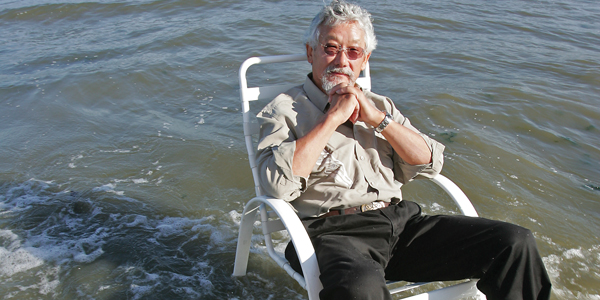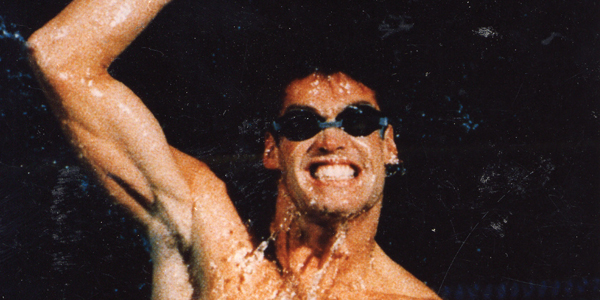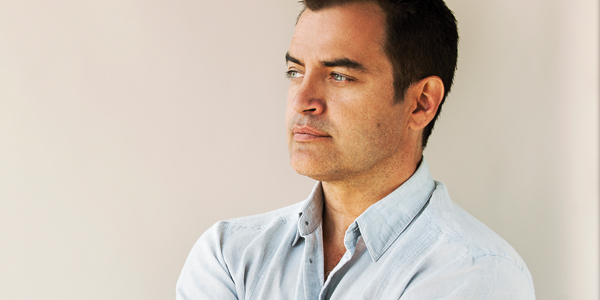Audacious. If somebody called me audacious, I’d have to pause and consider if it was a compliment or not. To exude audacity – well that’s just a little loud, even brazen! Canadians have mixed feelings about big ideas and bold, audacious ways of living. Dreaming big is great, but when we start talking about what we want, the real trouble begins.
During the recent Vancouver Olympic games, it was clear we loved to win. Each medal incited a wave of national pride that swept the nation off its feet. But when pressed to consider what we thought about a funding program called Own The Podium, most felt the name was somewhat brazen and others felt it was outright cocky. I wonder, however, if these sentiments are really cultural, or if they have more to do with our own personal discomfort with blatant ambition. Wanting to “own the podium” is ambitious, and we want to see even our finest athletes as humble and measured in their drive. To want to win an Olympic Gold medal is audacious. At times, the voices come, asking, “Who are you to do this? Who are you to accomplish the extraordinary?”
The remarkable Ashleigh McIvor, fresh off her Olympic Gold medal win, told me of voices who advised her not to take a break from school to pursue her love of snowboard cross. She shared with me of having to leave a boyfriend behind to be audacious, “One of the biggest risks I ever took,” she reflected.
Audacity isn’t a word I’d immediately associate with my friend and hero, Rick Hansen. There’s something about his quiet and humble demeanor that makes the word audacity feel misused. Rick Hansen believed he could do something no other human had ever done, wheel 40,000 miles, through 34 countries, to raise money and awareness for spinal cord injury. Today, The Rick Hansen Foundation, an organization he conceived and founded, is a leader in spinal cord research. It has made significant progress in its vision to find a cure for spinal cord injury and improve the quality of life for people with disabilities. I suspect Rick would be a little uncomfortable with the description, but he’s certainly audacious.
My dinner companions last night are also audacious. Johann Koss birthed a new genre in international development when he created Right To Play. Right To Play brings sport and play to the world’s most disadvantaged children. Every week, more than 700,000 children participate in its programs.
And my fiancée, the owner and founder of GoodLife Fitness, not only realized his dream of creating the dingle largest fitness company in Canada, he continues to challenge himself daily. His audacious goal is to find a cure for autism, a passion that stems from raising his profoundly autistic daughter, Kilee.
Keeping company with dreamers and doers inspires me to keep pushing, to explore my talents and follow my dreams. It also makes me wonder about our own conflicted relationship with high achievement.
My girlfriend, Jane Roos, had an audacious idea as she lay in her hospital bed recovering from her second major back surgery. She dreamed that excellence would be something we supported in Canada and throughout the world. Excellence is what she saw in the Olympic athletes in her life. She started the Canadian Athletes Now (CAN) Fund which has raised over 11 million dollars for our athletes. She’s audacious and fearless, and primarily through sheer guts and determination, she secures donation dollars and corporate support. She’s not one to rest on her laurels. Her bigger dream is that sport, music, art, and business can work together to support the dreams and dreamers of the world.
What’s been remarkable to watch is how her success has threatened everyone from the Canadian Olympic Committee to sport governing bodies. When I asked her about her struggles, she quoted Mahatma Ghandi – “First, they ignore you, then they ridicule, then they fight you, then you win.” This woman should be winning an award for what she’s done for our Canadian athletes; instead, reactions from the sport system have ranged from questioning her motivated to all out hostility.
Jane is an aspiring example of a woman living her dreams, contributing to the world, and overcoming overwhelming obstacles.
“Audacious Silken. Audacious? Silken?” old voices speak to me asking, “Who do you think you are?”… “Don’t get too big for your britches”… and chiding, “You think you’re better than us?!” They’re voices both with tones of the confident adult self, and the insecure child plagued by self-doubt. For most of us, our greatest battle in living audaciously is our own self-doubt. We’re afraid. We don’t know where to start. We defeat ourselves with negative self-talk before we even get out of the gate. It’s a Herculean task to wrestle our gremlins to the ground and take that first step forward As Jane says, “People get stuck in the ‘how’ of things and never get to the ‘do’ of things.” “How” can be a tormenting place, one that a good athlete friend of mine used to call the place of “paralysis by analysis”.
Looking for the right way to move forward is often a disguise for the fear of moving forward.
So you would think that when we meet someone who is very much in the “do” of life, we would jump to our feet to applaud his or her courage or tenacity. But too often, there’s reluctance to praise people of action. This lack of support for one another isn’t a cultural phenomenon but rather a social phenomenon. There’s little room in most social groups for anyone to succeed too much – the definition of “too much” being, naturally, ever-changing and indefinable. Maybe “too much” is simply the kind of success that causes others to look at their own lives and feel some discontent.
We’re so hard on ourselves that the accomplishments of others around us can make us feel like we’re not achieving. Most of us review our lives, and regardless of what wonderful things we’re doing, we always falling short. If another’s success causes our own self-criticism, it’s no wonder we feel uncomfortable with strong ambition. “If you can’t be good without me feeling bad, I guess it’s a lot easier to be mediocre!” I found that the more I liked myself and the more forgiving I became of my own inadequacies, the easier it was to enjoy the accomplishments of others.
Very little encouragement or opportunity exists within our social structures that makes us want to put up our hand and say, “I want to win; I want to be the best!” It’s simply too lonely. Often, being the best means leaving others behind. At the tender age of 19, Olympic Gold and Silver medal Mogul Skier Jennifer Heil temporarily left her national team behind and created her own team of excellence. Following her instincts and inner knowing, she found what she needed and thrilled Canada at the 2006 Olympic Games in Torino by winning an Olympic Gold medal. By 2005, she had brought her ideas around excellence to the team and created a program called B2Ten, which raises money to help bring other athletes to the podium.
Heil shared with me recently, “When I wasn’t satisfied with the coaching on the women’s team, I joined the men’s team. This move created bad feelings between some of the women who felt I thought I was too good to be part of their team. I was honestly too doggedly focused to be aware of this criticism, it was only years later that I learned of the anger my move incited in a handful of my teammates. Happily, my success with the men’s team and the utter brilliance of our coach transformed both programs into winning teams.” And that’s the thing – although we may at times feel threatened by the excellence of others, there’s no question it raises our game.
In any field, there are a brave few who stick their necks out, refusing to live in mediocrity, making room for possibility, For whatever reason, their passion is stronger, their determination greater, and their vision bigger. Nobody believed a human being could run a four-minute mile until Roger Bannister broke the barrier in 1954; it fell another 13 times that same year. No turbo-fuelled running shoes transformed the distance. No, such visionary, audacious accomplishments come from breaking down the mental barriers; recreating a new sense of the possible that extends our perception of limits, sets new records, and raises the bar.
These mavericks show us what is possible, and they seem to have an uncanny ability to stay buoyant within the sea of skepticism.
When Thomas Edison repeatedly failed in his experiments to invent the light bulb, the critics crept out of the woodwork, and his theories were disparagingly reviewed by journalists. I’ve witnessed the same harsh criticism of top-level athletes, writers, and coaches. The greater the success, the more open to criticism we become. When my coach, Mike Spracklen, failed to bring his 2000 Sydney Men’s Eight to Olympic Games gold, an army of nay sayers came forward criticizing everything from his training techniques to his personality. The two-decade long Olympic and World Championship winning streak was forgotten and tossed aside for a single season. Our memories can be short and somehow we feel justified in bringing the dreamers of our world down to the ground.
There have been many times in my life when I’ve reflected on the accomplishments of others and simply felt inadequate. I’ve feared that I am wasting my talents, wasting my time, and wasting my precious opportunities. Sometimes I question my choices and feel frustrated by my lack of progress.
Excellence tends to shine a spotlight on our life, and helps us see ourselves and the choices we’re making more clearly. I thought this a few months ago while talking to astronaut Robert Thirsk while he was in space. A doctor, a PhD, a father of two, and… did I mention he’s an astronaut?… made me feel like I was grossly underachieving – except he didn’t. On the contrary – when I talked to him, he made me feel like the most interesting and accomplished person in the world.
A talent that I have noticed in many of the high achievers and audacious thinkers that I know – they seem completely unaware of just how fabulous their contributions really are. This isn’t false modesty; merely an understanding that they’ve had opportunities to pursue their greatness, to be audacious in their thinking and their actions, and usually feel pretty blessed to have had the opportunity to pursue their talents.
Sometimes, seeing somebody in our circle excel reminds us that we have more to give and more to experience. This might feel like a criticism, but in fact it’s an amazing opportunity. They have the power to lift us to our potential, and usually have no intention of making us feel small. Nest time we feel that nasty self-doubt and criticism creep up In reaction to another’s spectacular accomplishments, it might make sense to stop and simply enjoy the other’s courage and vision, and let ourselves be inspired.
The audacious people in my close circle of friends, and even those on the periphery of my life, inspire me to continue to live my dreams every day. They help me find my own courage to make that phone call, take that risk; to get up when I’ve failed. I know that greatness is inspirational.
My kids were floating when they got back from the Olympic Games in Vancouver, and I’ve noticed that their vision for their lives has expanded. For every Robert Thirsk, Jen Roos, and Ashleigh McIvor, there are thousands of people who have been lifted by their stories and inspired to change their lives.
While training in San Diego for the 1996 Olympics, I developed a habit of being extremely self-critical. My rowing coach gifted me a great piece of wisdom. He told me that there would always be people faster than me, and that there would always be people slower; the important thing was that I put my best effort forward. Maybe what we most have to remember is that life is hard, and challenges lie around every corner. Everybody deserves support and encouragement. The biggest challenge is finding the confidence and belief to live to our potential.
Even the people in your life you believe to be superbly secure are mildly haunted by those old voices. They ask themselves if they’re making the right choices. They question whether they have what it takes. Let’s be a little more generous in our praise of one another; and enjoy the success of other without making it about what we lack. The people in our lives who are really shining are giving us a hand up. Maybe we should consider taking it..
5 Ways to Choose Audacity Daily:
- Keep company with dreamers and doers – greatness is inspirational.
- Choose a specific goal and ignore the skeptics.
- Don’t get paralyzed by “how” something can be done, just start doing it and leverage the momentum.
- Walk through fear and find the resources you need to rise to your fullest potential.
- Remember there will always be people greater and less than you; focus your energy on putting your best foot forward.






